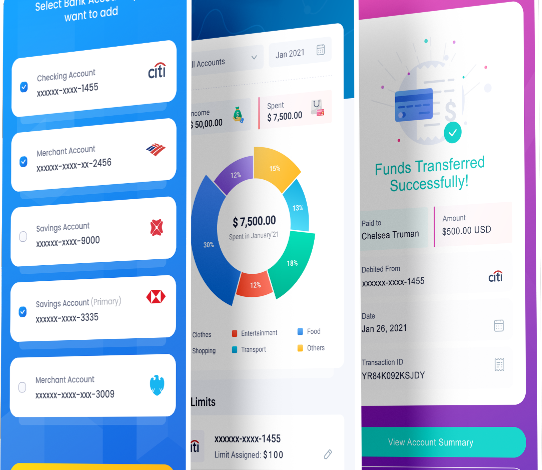Revolutionizing Development: Low Code Platforms for Application Development

In today’s fast-paced digital world, businesses are continuously looking for ways to innovate and deliver software solutions quickly. One of the most effective ways to achieve this is through low code platforms for application development. These platforms simplify the development process by minimizing the need for extensive coding, allowing businesses to focus on their core operations while deploying software solutions faster and more efficiently.
What is a Low Code Platform for Application Development?
A low code platform for application development is a tool that enables users to create applications with minimal hand-coding. Instead of writing thousands of lines of code, developers and even non-technical users can leverage graphical interfaces, drag-and-drop features, and pre-built components to design and launch applications. These platforms are designed to accelerate software development, making it possible to produce business-ready applications in days or weeks rather than months.
Key Features of Low Code Development Platforms for App Development
Visual Development Environment: One of the core strengths of a low code development platform for app development is the visual development environment. This allows users to create workflows, build user interfaces, and define data models using drag-and-drop tools. By reducing reliance on manual coding, it becomes easier for non-developers to contribute to the development process.
Pre-Built Templates and Components: Low code platforms come with pre-built components, modules, and templates that users can quickly integrate into their applications. These reusable components save time and effort, allowing developers to build apps more efficiently while maintaining flexibility for customization.
Seamless Integration Capabilities: A low code application development platform enables smooth integration with third-party systems, APIs, and legacy infrastructure. This is crucial for businesses that rely on various technologies and need to ensure seamless data exchange between systems.
Scalability and Flexibility: These platforms support scalability, allowing businesses to start small and expand as their needs grow. This flexibility ensures that as businesses scale, their applications can handle increased workloads and user demands without significant redevelopment efforts.
Benefits of Using Low Code Platforms for Application Development
- Faster Time to Market: One of the primary benefits of low code platforms is the speed at which applications can be developed and launched. Businesses can bring new solutions to the market much faster, responding more quickly to customer demands and market opportunities.
- Cost Savings: By reducing the need for large development teams and decreasing development time, businesses can significantly cut costs. A low code development platform for app development minimizes reliance on specialized coding skills, enabling companies to allocate resources more effectively.
- Increased Collaboration Between Business and IT: Low code platforms facilitate collaboration between IT departments and business teams. Non-technical users can actively participate in the development process by contributing ideas and testing applications, which leads to solutions that better meet business needs.
- Improved Agility: In an ever-changing market environment, businesses must remain agile. Low code platforms offer flexibility in application development, allowing companies to pivot, update, and enhance applications with ease. This adaptability ensures that businesses can respond quickly to changes in customer requirements or industry trends.
- Reduced Maintenance Burden: Traditional software development often comes with a high maintenance burden, especially when frequent updates or bug fixes are needed. Low code platforms automate much of the testing and maintenance processes, reducing the time and resources needed to keep applications running smoothly.
Use Cases of Low Code Application Development Platforms
- Enterprise Applications: Low code platforms are commonly used to develop custom enterprise applications that integrate with existing systems. These applications can handle tasks such as workflow automation, CRM, and ERP systems, improving internal processes and increasing operational efficiency.
- Mobile Applications: Businesses can quickly build and deploy mobile applications using low code platforms. Whether for internal use or customer-facing applications, these platforms support cross-platform development, ensuring that apps run seamlessly on different devices.
- Digital Transformation Projects: As organizations undergo digital transformation, low code platforms play a key role in modernizing legacy systems, automating manual processes, and improving customer engagement.
- Customer Service Portals: A low code application development platform allows businesses to build self-service portals for customers, reducing the load on customer service teams and providing customers with a seamless experience.
The Future of Low Code Development Platforms
The demand for low code platforms continues to grow as businesses across industries recognize the need for faster, more efficient application development. As these platforms evolve, we can expect further integration of advanced technologies such as artificial intelligence (AI) and machine learning (ML) to automate even more aspects of development, making it easier for businesses to create smart applications that adapt to user behavior and market trends.
Additionally, the rise of citizen development, where non-technical employees build applications for their departments, will continue to drive the adoption of low code platforms. This shift empowers businesses to innovate from within, fostering creativity and reducing dependence on IT teams for every application.
Conclusion
A low code platform for application development is a game-changer for businesses looking to streamline software development, reduce costs, and improve agility. By simplifying the process and enabling collaboration between business users and developers, these platforms are driving innovation across industries. Whether you are building enterprise-level applications or looking to modernize your systems, adopting a low code development platform for app development can accelerate your digital transformation journey and help you stay competitive in an evolving marketplace.





